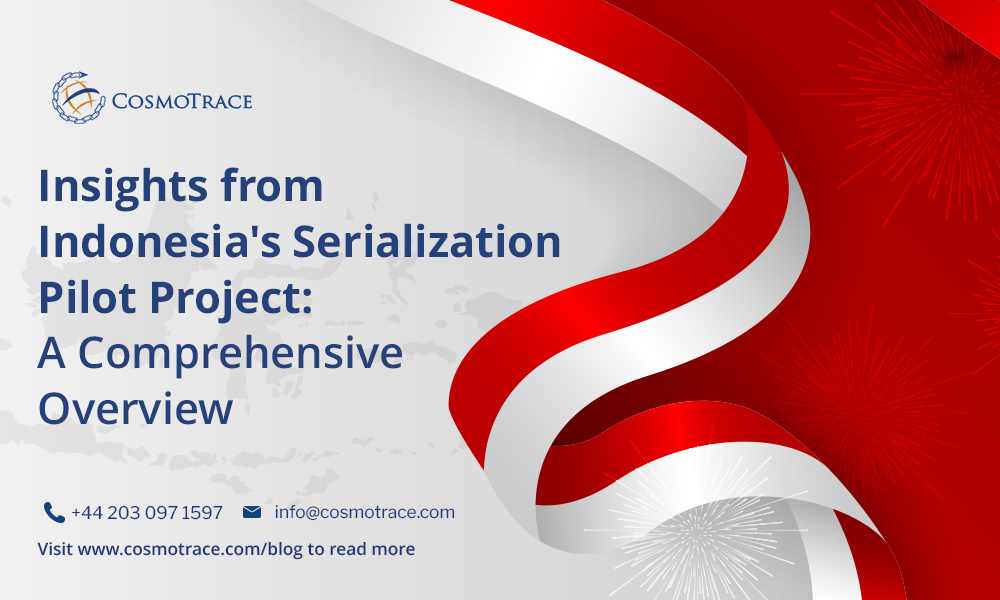The pharmaceutical serialization initiatives in Indonesia have been part of a broader regulatory effort led by the Indonesian National Agency of Drug and Food Control (BPOM). The push toward serialization aligns with global trends and is aimed at enhancing drug safety, combating counterfeit medicines, and improving supply chain transparency. Here are more detailed insights, including the timeline and technical aspects of the serialization efforts:
Timeline and Background
Early Discussions (2017-2018): Indonesia began considering serialization and traceability in the pharmaceutical sector as part of its strategy to combat counterfeit drugs. These early discussions were influenced by global regulatory trends, particularly in markets like the European Union and the United States, where serialization had already been implemented or was in the process of being adopted.
Initial Pilots (2019-2020): Indonesia started pilot projects to explore the feasibility of pharmaceutical serialization. These pilots involved collaboration with selected pharmaceutical companies, technology providers, and regulatory authorities. The goal was to test serialization technologies, including the application of unique identifiers on pharmaceutical packaging and the integration of tracking systems throughout the supply chain.
Expansion and Implementation (2021-Present): Based on the pilot results, BPOM has been working on expanding the serialization efforts. This includes drafting regulations, setting technical standards, and working towards a full-scale rollout. The pandemic has accelerated the focus on ensuring the safety and authenticity of pharmaceutical products, further pushing the serialization agenda.
Serialization in the pharmaceutical industry involves several technical components:
- Unique Identification Codes:
Pharmaceuticals are marked with unique identification codes (UIDs), usually in the form of DataMatrix barcodes or QR codes. These codes include information such as the product's Global Trade Item Number (GTIN), serial number, expiration date, and batch/lot number.
- Data Management Systems:
The UIDs are tracked through centralized databases managed by either the government or authorized service providers. This allows for real-time tracking and tracing of pharmaceutical products throughout the supply chain.
- Integration with Global Standards:
Indonesia’s serialization system is designed to be compatible with global standards, such as those set by GS1. This ensures interoperability with other countries' systems and supports international trade.
- Pilot Phases:
Phase 1: Focused on a limited number of high-risk pharmaceutical products. It involved applying serialization codes to packaging and tracking them through the supply chain within Indonesia.
Phase 2: Expanded the scope to include more products and introduced additional layers of verification, such as authentication checks by wholesalers and retailers.
- System Components:
Line-Level Serialization: Equipment at manufacturing lines to print and verify serialization codes on each product package.
Aggregation: Linking serialized codes of individual products to their shipping containers (cases, pallets) to maintain traceability through all packaging levels.
Data Exchange and Reporting: Pharmaceutical companies are required to report serialization data to the BPOM’s central database. This data is then used for monitoring and ensuring compliance.
- Challenges and Solutions:
Technology Infrastructure: Implementing the necessary technology infrastructure in manufacturing plants and along the supply chain.
Data Management: Ensuring the security and integrity of the data collected during serialization.
Stakeholder Engagement: Training and educating stakeholders, including manufacturers, distributors, and healthcare providers, on how to handle serialized products.
Future Developments
Indonesia is expected to continue expanding its serialization efforts, potentially moving towards a full-scale national implementation. This might involve stricter regulatory enforcement, broader industry adoption, and enhancements to the technical systems used for tracking and verifying pharmaceutical products. These developments are part of Indonesia's broader strategy to align with international standards, protect public health, and ensure that only safe, legitimate pharmaceuticals reach consumers.
Reference
How can CosmoTrace help?
We provide serialization consulting, implementation & integration services to help our clients manage end-to-end serialization projects and prepare them for the existing and upcoming regulations across the globe.
Disclaimer
This information is being provided ‘As Is’ with no claims of suitability for a particular purpose. It represents just one possible interpretation of information available in the public domain or through membership organizations, and that interpretation is subject to change. This information does not constitute legal advice. Users must refer to the source material for the complete requirements and form their interpretation before making business decisions. Please use the references below to follow the updates at the source.


